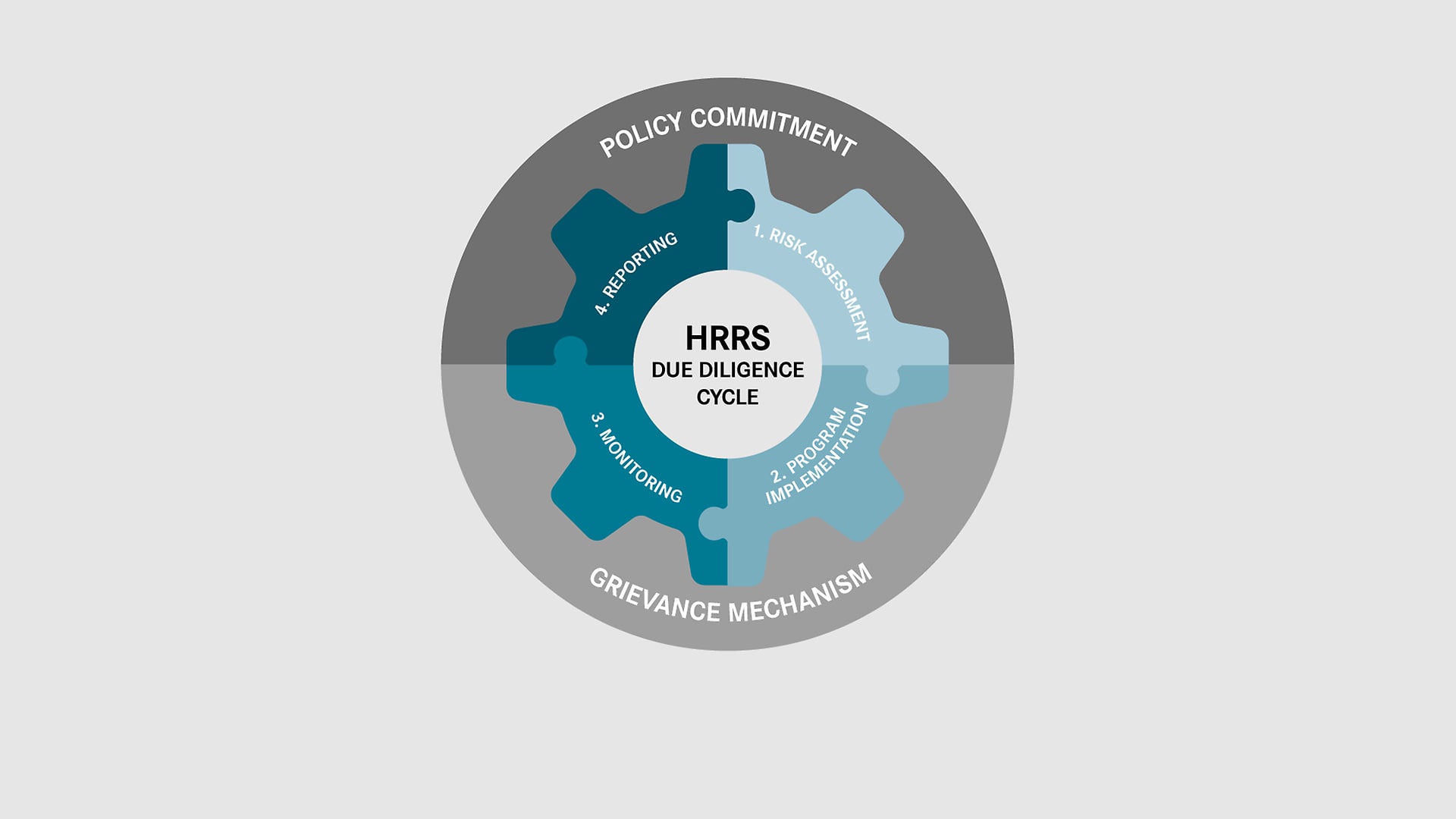The Mercedes-Benz Human Rights Respect System (HRRS) employs a risk-based approach to systematically address human rights issues. It is designed to identify and avoid systemic risks and possible negative effects of our business activities on human rights early on. The HRRS especially focuses on the risks faced by affected individuals on the ground.
In our Integrity Code and our Principles of Social Responsibility and Human Rights, we commit ourselves to respect and uphold all internationally recognized human rights within our company and also in our supply chain. As a responsible company, Mercedes-Benz Group is committed, among other things, to implementing the International Bill of Human Rights, the UN Guiding Principles on Business and Human Rights and the International Labor Organization's Declaration on Fundamental Principles and Rights at Work.
The human rights standards we consider to be most relevant in the corporate context include: Freedom of assembly and association, prevention of child labour, free choice of employment, fair remuneration, working hours and social benefits, the prevention of discrimination and equal opportunities as well as health and safety at the workplace.
To this end we have developed a due diligence approach in the form of the Mercedes-Benz Human Rights Respect System (HRRS). The HRRS is unique in our industry. The HRRS is designed to identify and avoid risks and possible negative effects of our business activities on human rights early on. It is applied both in our supply chains as well as in our companies in which we are the majority shareholder.
The HRRS is based on our Group-wide Compliance Management System. It comprises four steps:
In the first step we carry out a risk assessment. Various international reference documents serve as the basis for these risk assessments. With regard to raw materials, we use the “Child and Forced Labor List” from the US Department of Labor, for example. Extraction and mining methods, and the countries where raw materials are located, all play an important role in our analyses. With regard to services, we make use of the “Corruption Perception Index” published by Transparency International
Human rights in the supply chain
With regard to Group companies, the risk assessment envisages the regular classification of the Group companies, initially on the basis of predefined criteria such as the risks associated with specific countries and specific business operations. Here we take into account fundamental human rights standards such as those defined in the Universal Declaration of Human Rights and those formulated by the International Labour Organization (ILO). On this basis, we annually conduct an in-depth analysis using a human rights survey and define risk-specific sets of measures, which we offer to the respective Group companies.
When there are indications of risks, we take a closer look at the supply chain in a second step. In this process we go beyond direct suppliers and create transparency, right down to the mine when necessary. Our aim is to fully identify risk hotspots in our supply chains and understand the mechanisms behind them. Based on our analysis, we take risk-reducing measures.
The third step of the HRRS is the evaluation of the implementation and the effectiveness of the measures. Of course, we constantly adapt the system to new findings and challenges.
We continuously and transparently report on our progress and the challenges we face, for example in our Sustainability Report.
The Human Rights Respect System enables us to proceed in a strategic and goal-oriented manner and to identify and minimize possible risks at an early stage. In doing so, we are actively committed to respect for human rights in our supply chains.

